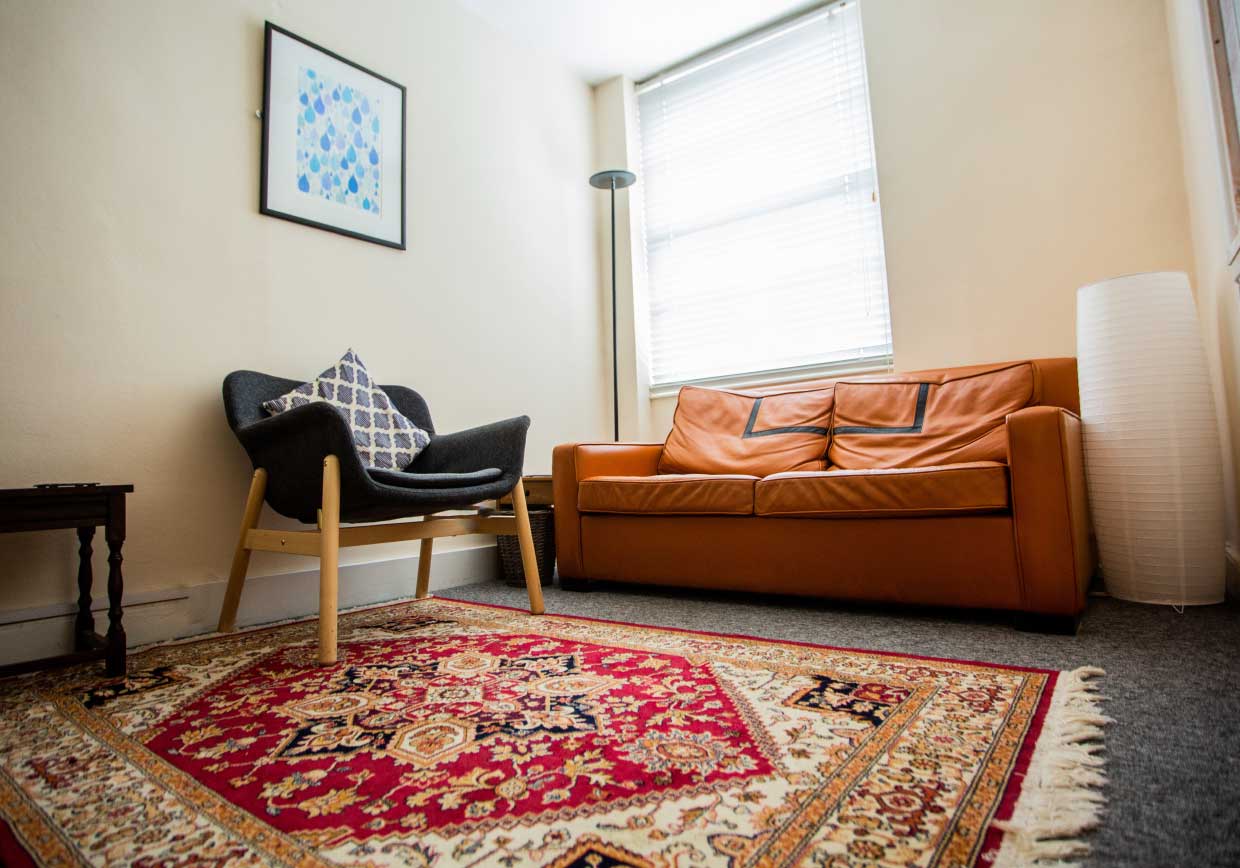Why couples therapy?
Couples therapy can help in finding ways to break cycles of tension and conflict and to explore possibilities for building connection, restoring aliveness and cultivating intimacy.
Each relationship will have its own story to tell – from the initial attractions, sharing and intimacy to the disappointments, misunderstandings and ruptures in trust that may have occurred along the way. Partners in a long-term relationship are often able to evoke powerful feelings in each other, something that can fuel the potency and passion, but at times may also result in confusion and conflict. It’s not unusual for the ups and downs of life to take its toll and it can be hard to find the time and energy to nurture relationships in the way they deserve. Some couples will seek support for their relationship because they feel stuck and are struggling to find a way forward, whilst others may be looking to build on what they have, a sort of relationship ‘keep fit’.
What’s it all about?
‘Our journey into the otherness of the other often surprises us with unknown features of ourselves’
Stephen Mitchell, ‘Can Love Last’
Establishing a safe and respectful therapeutic space is a cornerstone of couples therapy; this doesn’t mean that the process won’t at times feel challenging – there’s no magic wand and exploring the reactive behaviours and underlying emotions that contribute to conflict and disconnect are an important part of the work.
How individuals relate to others, particularly in longer-term intimate relationships, is also influenced by a broader background. We learn ways of being in relationship from our earliest experiences -our parents, wider family, culture, education, friendships will have shaped the way we relate to others – our expectations, ways of coping and protecting ourselves, how we communicate and attempt to get our relational needs met.
Paying attention to both the problems and the strengths of the relationship is part of the couple-work process; along with identifying and exploring repetitive negative cycles of interaction and the communication styles, emotions and behaviours that contribute towards maintaining unhelpful patterns.
Sounds like hard work?
Being in a loving relationship is one of the most rewarding things humans can achieve, but maintaining a relationship requires commitment, courage and persistence.
Nick Duffell, (Sex, love and the Dangers of Intimacy)
We are drawn to our partners because we like what we see and experience when we are with them. Often that initial sense of attraction and connection is very powerful, this is the ‘one’ who we can at last feel both alive and safe with. As time goes on we get to know more about each other, life throws up what life throws up and we may find ourselves feeling irritated or let-down by the same things that attracted us earlier on. It can feel disappointing and daunting when the relationship ‘dance’ is demanding something more than we bargained for.In a committed relationship this is a stage that most couples will encounter at some point, but it can present opportunity as much as it does challenge. The romantic Waltz or sexy Salsa danced in the earlier stages of the relationship, may now feel more like a lonely stumble or angry stomp. Finding a new harmonious yet satisfying way of moving along together can feel like dancing in the dark, constantly stepping on each others’ toes. In their book, Sex, Love and the Dangers of Intimacy, Nick Duffell & Helena Sorensen view the couple relationship as a ‘teacher’, they describe how, as we find our way through what might seem at times to be a relationship minefield, there is the potential of discovering new life in ourselves and each other.
And sex?
‘In sex we may discover who we are in ways otherwise unavailable to us, and at the same time we allow our partner to see and know that individual. As we unveil our bodies, we also disclose our persons’.
Thomas Moore, Soul Mates, Honouring the Mysteries of Love and Relationship
Sex between long-term partners can provide a profound sense of connection, satisfaction and fun. True sexual intimacy however, requires that we take ourselves fully into relationship with our partner, which can bring up profound feelings of vulnerability. We often take unhelpful projections, expectations and fears into our relationships; with greater self-awareness we become more able to free ourselves from restrictive life-scripts, and better able to regulate and harmonize the inner and outer flow of sexual energy. Sexual difficulties may reflect how a person feels within themselves and in their relationship, and as such may be an integral part of the therapeutic process.
What will I need to do in couples therapy?
There are no particular requirements in order to engage in couples therapy, other than a sense of curiosity – curiosity about what’s happening within yourself, within your partner and between the two of you. There’s no simple ‘fix’ or ‘switch’ that will sort things out, but the process can support you in what might prove to be a rich journey of discovery.
Is all couples counselling/therapy the same?
There are numerous theoretical models and approaches for working with couple relationships. Couples counsellors/therapists may use a specific approach, others combine insights and interventions from a range of different approaches. The information above draws upon Creative CoupleWork (Nick Duffell & Helena Sorensen), Emotionally Focussed Couples Therapy (Susan Johnson) and Sexual Grounding Therapy® (Willem Poppeliers).




